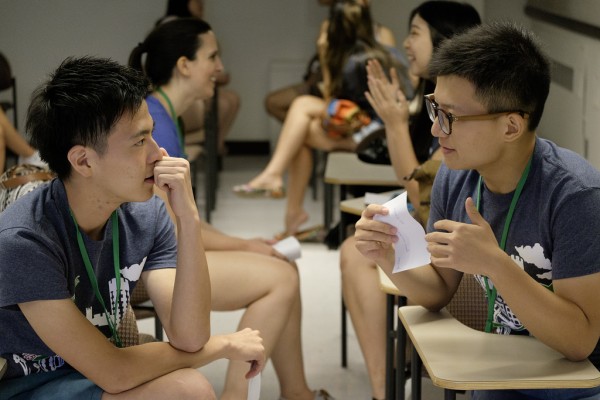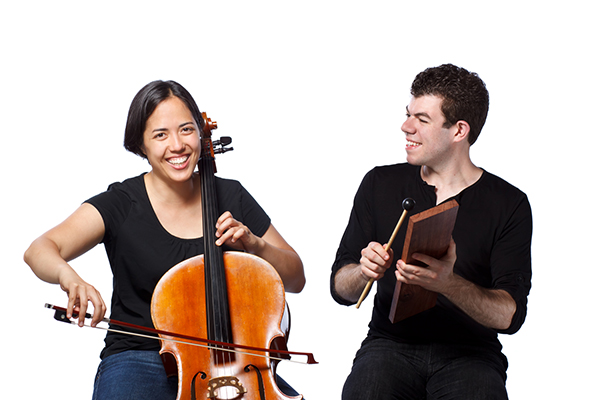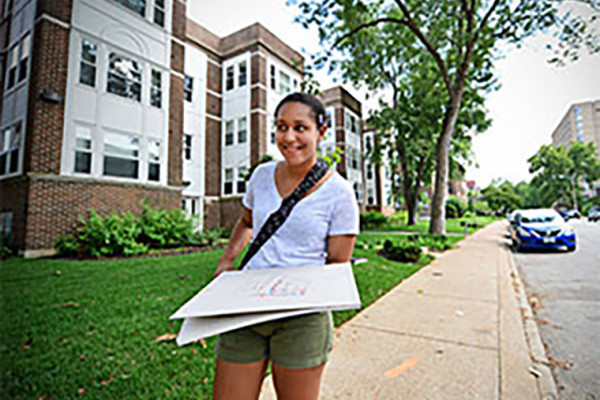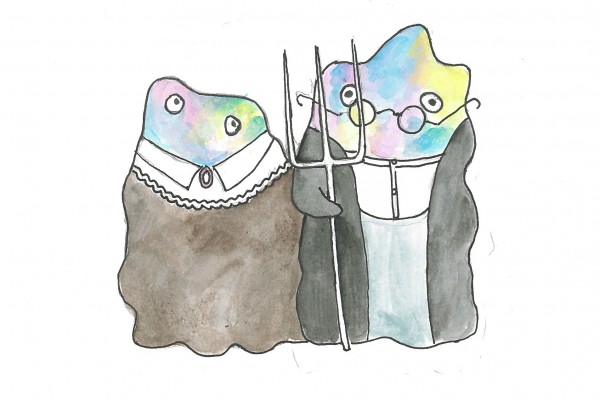Many parents unaware of e-cigarette dangers to children
As the use of e-cigarettes has risen dramatically in the United States in recent years, so have calls to poison centers about them. Yet many parents who use e-cigarettes – or “vape” – aren’t aware of the dangers to children, according to a study at the School of Medicine.
New universitywide wellness challenge to launch
It’s time to get up and get moving. Washington University in St. Louis faculty, staff members, clinical fellows and postdoctoral appointees can sign up to participate in the next wellness challenge, WashU Moves. The program launches Sept. 2 and runs through Dec. 10, and each person’s goal is to take 10,000 steps, or roughly 5 miles, each day.
The Class of 2019 makes itself at home
It has been a busy week for the newest members of the Washington University in St. Louis community. These videos capture the sights and sounds of first-year students moving in to their new homes, celebrating Convocation and sharing what they learned on their first day of class.
Relapse, poor survival in acute leukemia linked to genetic mutations that persist in remission
For patients with an often-deadly form of leukemia, new research by Timothy J. Ley, MD, and colleagues suggests that lingering cancer-related mutations – detected after initial treatment with chemotherapy – are associated with an increased risk of relapse and poor survival.
The View From Here
Images captured in and around the Washington University campuses. Click on the ‘i’ in the upper-left corner for captions.
DUC Chamber Music Series begins Sept. 21
Isabel Trautwein, violinist for the Cleveland Orchestra, will launch the Danforth University Center Chamber Music Series at Washington University in St. Louis with a free concert Sept. 21. Also featured this fall will be early music ensemble The Newberry Consort; a world premier by Washington University composer Christopher Stark; and the Songs of Africa Ensemble.
Gephardt Institute renews mission to address community issues, shared problems
The Gephardt Institute for Civic and Community Engagement at Washington University in St. Louis is celebrating its tenth anniversary with a new name, new initiatives and new funding for its acclaimed Civic Scholars program. The mission, however, remains the same.
Bacterial infection makes farmers out of amoebae
A bacterial infection turns non-farming social amoebae into farmers, Washington University evolutionary biologists report in the Aug. 24 issue of Proceedings of the National Academy of Sciences.
Washington University welcomes Class of 2019
Washington University in St. Louis welcomed one of its largest and most diverse classes in its history on Thursday, Aug. 20. Some 1,730 students from all 50 states and 23 countries moved into their residential colleges with the help of approximately 350 faculty, staff and student volunteers.
Zhang receives NASA early-career faculty award
Fuzhong Zhang, PhD, assistant professor of energy, environmental and chemical engineering at Washington University in St. Louis, has received an early-career faculty award from NASA.
View More Stories





